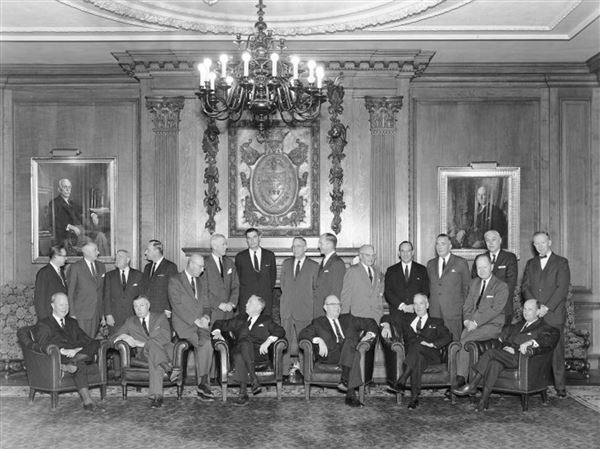
Darrell Sapp, Post-Gazette
Charles Firth, of Dormont, walks along Forbes Avenue past a Port Authority bus. Mr. Firth, who has an information technology consulting business, is visually impaired and relies on public transportation to go to different job sites.
Pittsburgh Post-Gazette
Evelyn and John Nickel do not ride Port Authority buses to save gas. Nor do they take them to avoid Downtown traffic and parking.
Both blind, the Nickels rely on buses to go to work, to go grocery shopping, to live independently.
With the proposed Port Authority service cuts, the couple is now preparing to cut back on their mobility.
 Angry riders assail planned mass transit cuts (01/23/07)
Angry riders assail planned mass transit cuts (01/23/07)
"Just because we're blind does not mean we sit in the house," said Mrs. Nickel, 58, of Swissvale, who works for Blind & Vision Rehabilitation Services of Pittsburgh's Industries Division. "We own our own house. We've raised a son. We've done everything as normally as possible, and now the Port Authority wants to cripple that."
Delores Wagner, 54, also is visually impaired. She moved to her Baldwin Borough home last June because it was on a bus route.
By this June, their buses could be eliminated.
"The bottom line is, if they decide to do this, I'll have to move," said Ms. Wagner, who works for PBA Industries.
The Port Authority heard similar stories last week from hundreds of disabled riders testifying for the buses they rely on.
Mrs. Nickel needs the 63B, 68G, 79A and 79B. For Ms. Wagner, it is the 35A and the 46D.
The stories will continue this week as the series of public hearings into proposed transit cutbacks resumes on Wednesday, from 4 to 8 p.m., at Comfort Inn, 2801 Freeport Road, Harmar, and on Thursday, from 4 to 8 p.m., at West View Fire Hall, 398 Perry Highway.
The final scheduled hearing will be Feb. 7, from 5 to 9 p.m., at Castle Shannon Volunteer Fire Department, Route 88 and Sleepy Hollow Road.
The Port Authority plans to eliminate 124 of 213 bus routes and to increase fares to address an $80 million budget deficit for the 2007-08 fiscal year. The service cuts are scheduled to go into effect in June.
Blind people were among those who have already testified, begging for the buses that make many aspects of their lives possible. Susan Etters of Sewickley was another one of them.
"We love our families, but you can't ask them to take you everywhere," said Ms. Etters, 55, a telephone operator at Blind & Vision Rehabilitation Services of Pittsburgh who testified Friday in Moon.
"The bus enhances my independence."
On the Pittsburgh transportation committee for the Pennsylvania Council of the Blind, Ms. Etters has been a vocal advocate for the blind. She has testified at several Port Authority hearings and has written to state officials.
"Not having the bus is like not having drinking water," she said. "We need the bus."
Ms. Etters said she and other blind riders will have to rely more heavily on ACCESS, a Port Authority-sponsored transit program that provides transportation for senior citizens and people with disabilities. ACCESS was established in response to the Americans With Disabilities Act, which mandates that public transportation be made accessible to people with disabilities. Its fare is based on Port Authority bus fares.
But not every visually impaired person immediately qualifies for the service.
Those who are able to use public transportation independently are not eligible unless conditions -- such as walking in snow or along a busy road -- prevent them from reaching bus stops. ACCESS also will provide a feeder trip from the rider's home to the bus stop if the distance is five miles or more.
Even if people with disabilities do not qualify for ACCESS under those conditions, they are still able to use the service. If they do, they are charged a convenience fee, which doubles the regular fare.
The Port Authority has proposed to raise the regular ACCESS fare by 50 percent in June.
When it comes to grocery shopping, Mrs. Nickel falls in that group. If the Port Authority cuts the 79A and 79B, she will have to walk a mile to catch the nearest bus at Edgewood Towne Centre.
"It just makes me mad," she said. "We're not relying on the government for handouts. We do everything we can do to help ourselves."
Ms. Wagner will have to walk four miles to Route 51 to catch a bus if the Port Authority eliminates her routes.
Charles Firth of Dormont is a little different. Blind in his left eye and lacking depth perception, he is unable to drive. But he does not rely on a particular bus to take him to his destination every day.
From the 1F to the 93A, he rides them all.
Mr. Firth, 32, owns his information technology consulting business and traverses Pittsburgh to serve his clients.
"You say a place, and I can tell you the number of the bus that will take you there," he said.
Not only does he know the direct route, but he also knows an alternative for getting there quickly when a customer's computer server crashes. Come June, his options will shrink.
Like many of Pittsburgh's blind residents who rely on buses to take them to work, Mr. Firth would prefer to pay more per trip than to lose the buses.
"If I can't get there, my business suffers," he said. "That costs me more than a rate hike."
Like Ms. Wagner, Mr. Firth moved to his current home because of its proximity to public transportation.
"Every successful city has a working transit system," he said. "There are days I wonder why I don't live there."
First Published: January 29, 2007, 5:00 a.m.














